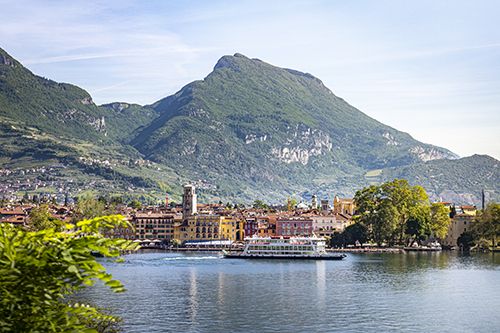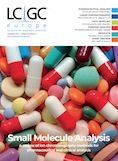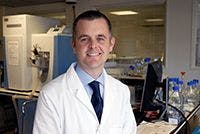44th International Symposium On Capillary Chromatography and the 17th GC×GC Symposium
The 44th International Symposium On Capillary Chromatography (ISCC) and 17th GC×GC Symposium will be held at the Palazzo dei Congressi, in Riva del Garda, Italy, from 24–29 May 2020.
Photo Credit: stefanotermanini/stock.adobe.com

The 44th International Symposium On Capillary Chromatography (ISCC) and 17th GC×GC Symposium will be held at the Palazzo dei Congressi, in Riva del Garda, Italy, from 24–29 May 2020.
Over the years, the ISCC conference has established its reputation as a forum for microcolumn separation techniques. Since the first meeting in Hindelang in 1975, the most important developments in capillary gas chromatography (GC), microcolumn liquid chromatography (LC), and electromigration techniques have been presented in this symposium series. The format and the atmosphere of the 44th meeting will be similar to the previous meetings, with a particular emphasis on mass spectrometry (MS) this year.
Past meetings have been held in Hindelang, Riva del Garda, Monterey, Baltimore, Gifu, Kobe, Wintergreen, Park City, Las Vegas, Dalian, Albuquerque, Portland, and San Diego. This year the “Palazzo dei Congressi” in Riva del Garda, Italy, will accommodate the 44th meeting. The six-day event will feature recent findings from leading academic and industrial experts in the form of lectures and posters. Apart from the most recent advances in the fields of pressure and electrodriven microcolumn separation techniques and comprehensive two-dimensional (2D)-GC, this year will again have particular emphasis on comprehensive separation technologies combined with capillary chromatography and 2D-GC with various forms of mass spectrometry, from unit-mass to high resolution, and from single- to hybrid analyzers.
The conference also offers sessions on capillary GC, microcolumn LC, electromigration methods, and microfabricated analytical systems, which are expected to cover lab-on-a-chip, column technology, coupled and multidimensional techniques, comprehensive techniques, hyphenated techniques, sampling and sample preparation, trace analysis, and automation. Application sessions include environmental; energy, petrochemical, industrial; biomedical, pharmaceutical; and the analysis of natural products, food, flavours, and fragrances. Workshop seminars from instrument manufacturers and an extensive exhibition of instrumentation, accessories, and supplies will run in parallel to the scientific programme.
At the meeting, the 2020 Marcel Golay Award, sponsored by PerkinElmer, will be presented in recognition of outstanding contributions in the field of separation science. The Leslie Ettre Award, sponsored by PerkinElmer, will be presented to a young scientist for research on capillary GC applied to environmental or food analyses.
The Giorgio Nota Award, sponsored by Waters, will be presented to a scientist in recognition of a lifetime of achievement in capillary LC. The John Phillips Award, sponsored by LECO and Restek, will be awarded to individuals who have made outstanding contributions to the field of GC×GC analysis. The GC×GC Lifetime Achievement Award, sponsored by LECO and Restek, honours an experienced GC×GC scientist who has made significant contributions to the field. Chromaleont, ISCC and GC×GC, Fort Worth Texas 2021, the Division of Analytical Chemistry of the Italian Chemical Society (SCI) and the Interdivisional Group
of Separation Science of the Italian Chemical Society, Elsevier, Secyta, and Separations (MDPI) will promote scholarships for young researchers. For more information, please visit: www.chromaleont.it/iscc; E-mail: iscc@chromaleont.it
Removing Double-Stranded RNA Impurities Using Chromatography
April 8th 2025Researchers from Agency for Science, Technology and Research in Singapore recently published a review article exploring how chromatography can be used to remove double-stranded RNA impurities during mRNA therapeutics production.
The Effect of Time and Tide On PFAS Concentrations in Estuaries
April 8th 2025Oliver Jones and Navneet Singh from RMIT University, Melbourne, Australia discuss a recent study they conducted to investigate the relationship between tidal cycles and PFAS concentrations in estuarine systems, and offer practical advice on the sample preparation and LC–MS/MS techniques they used to achieve the best results.









